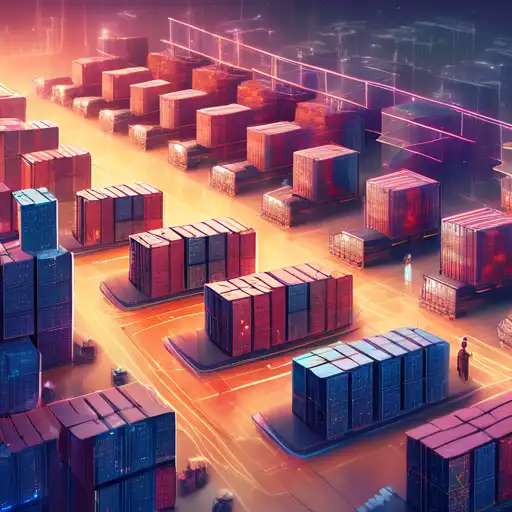The Transformative Power of Blockchain in Modern Supply Chains
In today's fast-paced and increasingly digital world, the supply chain industry is undergoing a significant transformation. At the heart of this change is blockchain technology, a decentralized digital ledger that offers unparalleled transparency, security, and efficiency. This article explores how blockchain is revolutionizing supply chains, making them more transparent, efficient, and secure than ever before.
Understanding Blockchain Technology
Before diving into its applications, it's essential to understand what blockchain technology is. In simple terms, blockchain is a distributed database that maintains a continuously growing list of records, called blocks, which are linked and secured using cryptography. This technology is the backbone of cryptocurrencies like Bitcoin, but its potential applications extend far beyond.
Enhancing Transparency and Traceability
One of the most significant advantages of blockchain in supply chains is its ability to enhance transparency and traceability. Every transaction or movement of goods can be recorded on a blockchain, creating an immutable and transparent history. This is particularly beneficial in industries where provenance and authenticity are crucial, such as pharmaceuticals, luxury goods, and food safety.
Improving Efficiency and Reducing Costs
Blockchain can streamline supply chain operations by eliminating intermediaries, reducing paperwork, and automating processes through smart contracts. These are self-executing contracts with the terms of the agreement directly written into code. By reducing manual processes and the potential for errors, blockchain can significantly lower operational costs and improve efficiency.
Strengthening Security
The decentralized nature of blockchain makes it highly resistant to fraud and cyberattacks. Each transaction is encrypted and linked to the previous one, making it nearly impossible to alter historical records without detection. This level of security is invaluable in protecting sensitive data and preventing counterfeit goods from entering the supply chain.
Real-World Applications
Several industries are already leveraging blockchain to transform their supply chains. For example, in the food industry, blockchain is being used to track the journey of products from farm to table, ensuring food safety and quality. In the pharmaceutical sector, it helps in combating counterfeit drugs by verifying the authenticity of medications. The possibilities are endless, and as the technology matures, its adoption is expected to grow exponentially.
Challenges and Considerations
Despite its potential, the adoption of blockchain in supply chains is not without challenges. Issues such as scalability, interoperability, and regulatory compliance need to be addressed. However, with ongoing advancements and collaborations among stakeholders, these hurdles can be overcome, paving the way for a more transparent, efficient, and secure supply chain ecosystem.
In conclusion, blockchain technology holds the promise of revolutionizing supply chains by enhancing transparency, improving efficiency, and strengthening security. As more organizations recognize its potential, we can expect to see widespread adoption across various industries, marking a new era in supply chain management.
